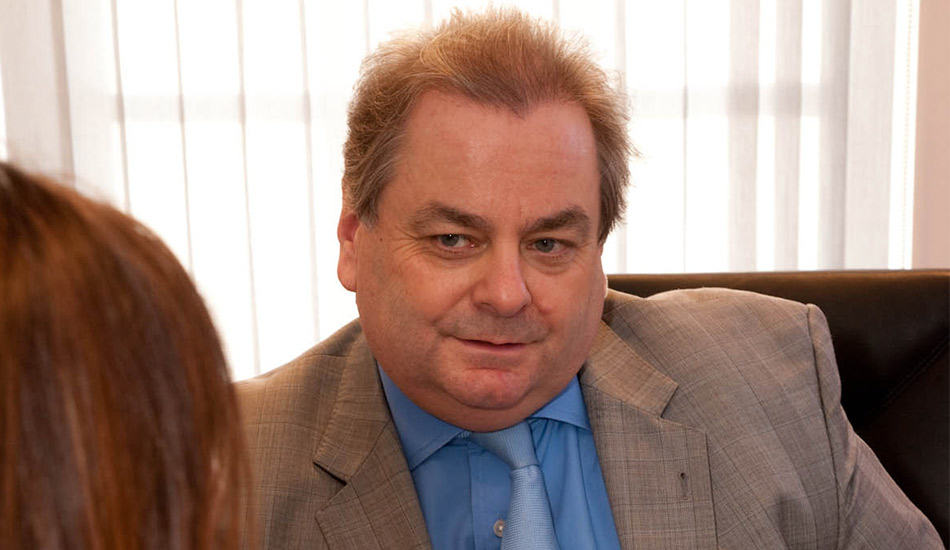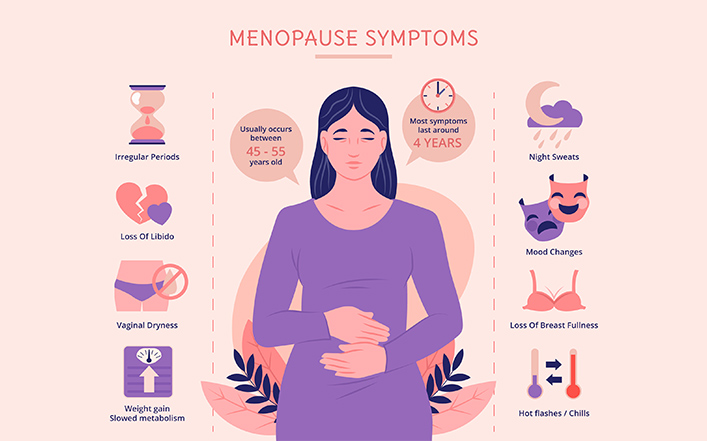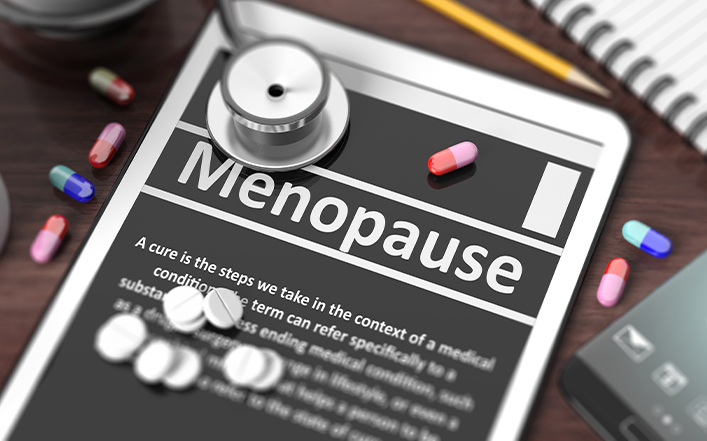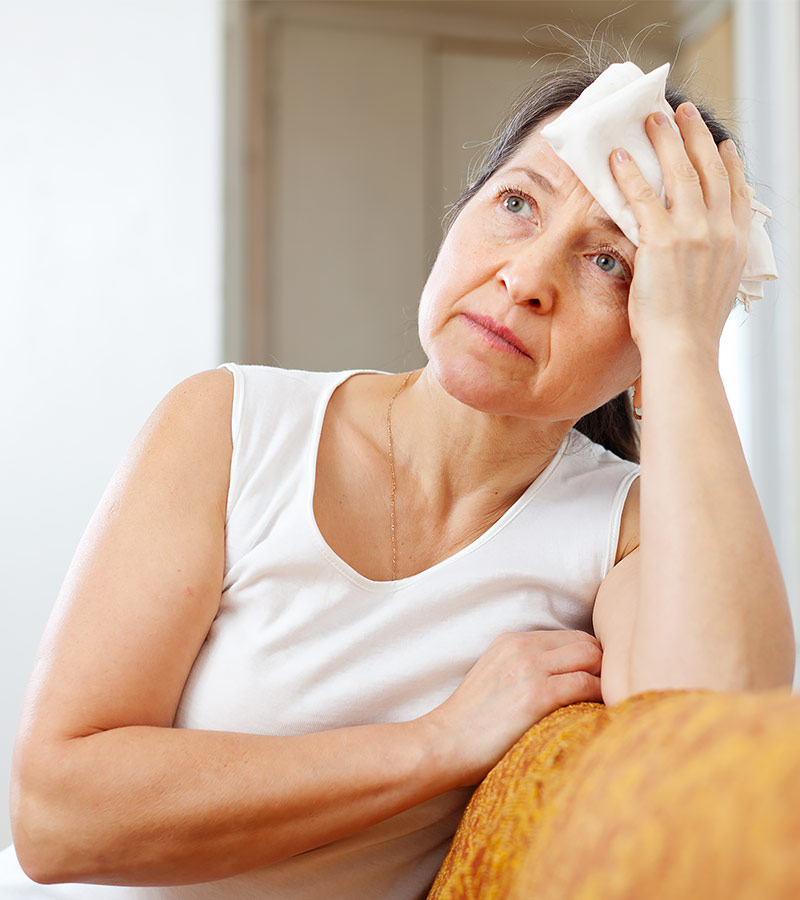The average age of the menopause in the UK is 51. This is lower in smokers, and women from the Indian subcontinent. A menopause before the age of 40 is defined as a ‘premature menopause’, and also ‘premature ovarian insufficiency’. Women who have a premature menopause are at greater risk of osteoporosis.
The characteristic symptoms of the menopause include: hot flushes, night sweats, vaginal atrophy (vaginal dryness, psychological symptoms including low mood, anxiety and forgetfulness, joint and muscle pain, sleep disorders and a loss of libido.
The menopause develops when your ovaries stop producing the hormone oestrogen, and the symptoms occur as a direct result of the loss of oestrogen. The loss of oestrogen may not only increase your risk of osteoporosis, but will also lead to thinning of the vaginal mucosa, and a loss of the necessary acidic vaginal PH. This will lead to vaginal atrophy, and can cause an irritable bladder, and recurrent urinary infections.
Every woman will have different menopausal symptoms, but in the UK many women now opt for Hormone Replacement Therapy to reduce the severity of the symptoms.
The medical literature supports the use of HRT from the start of the menopause, and the benefits may be reduced if starting treatment a year after the last period.
There is a key relationship between postnatal depression, and severe peri-menopausal symptoms and the menopause. Earlier intervention and HRT support is effective at reducing depression.
- 51 is the average age of a woman at the menopause.
- Women can have severe peri-menopausal symptoms, and will also benefit from HRT.
- A premature menopause or premature ovarian failure is a menopause before the age of 40. These women are at greater risk of osteoporosis.
- Hormone Replacement Therapy is effective at treating symptom relief.







